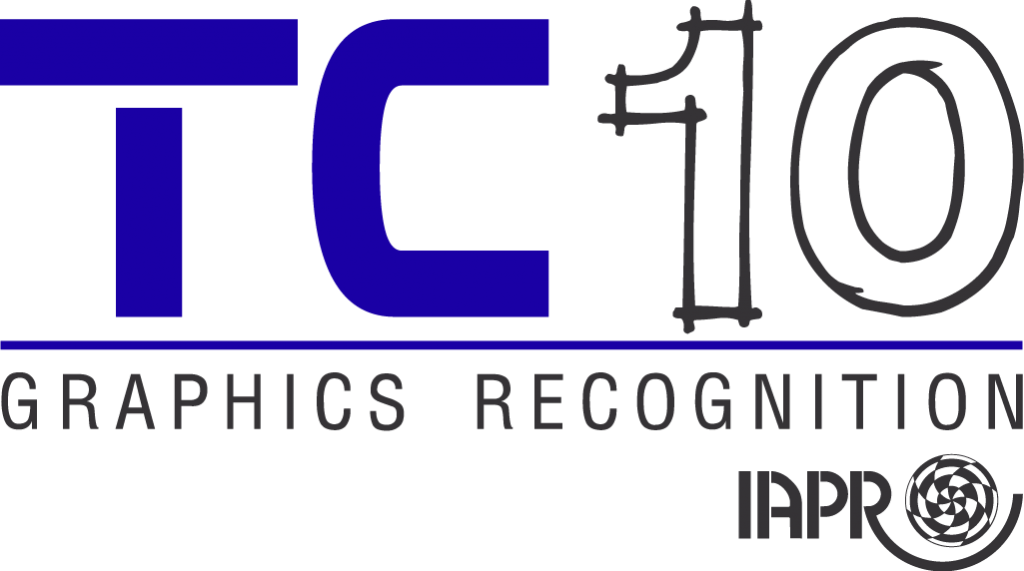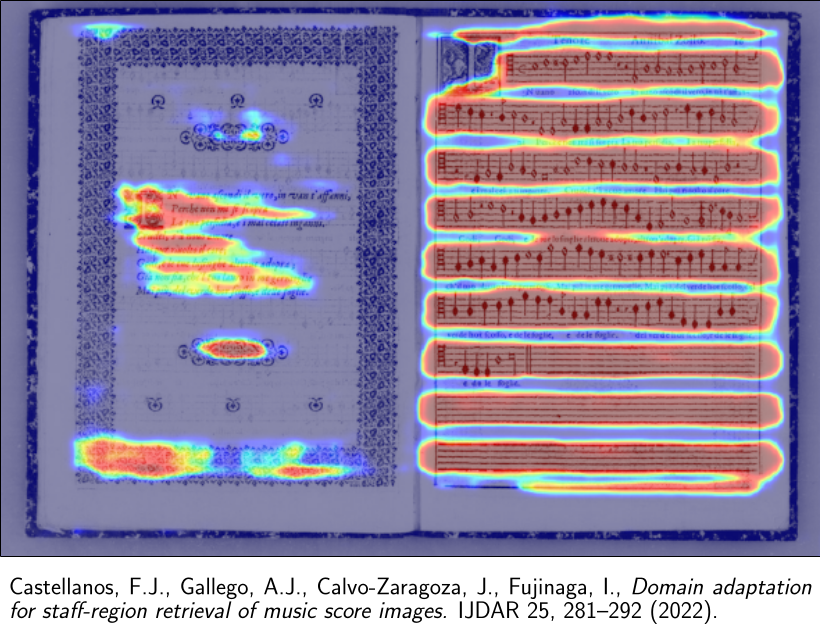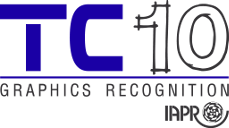

Welcome to the December edition of the TC10 newsletter.
In this issue, you will find call for workshop and tutorial of ICDAR 2023, the call for proposal of DAS2024, the last IJDAR issue summary and a new job offers in Barcelona (Spain).
I wish you a pleasant reading,
Christophe Rigaud
IAPR-TC10 Communications Officer
Call for contributions: feel free to contribute to TC10 newsletters, by sending any relevant news, event, notice, open position, dataset or link to us on iapr.tc10[at]gmail.com
1) Upcoming deadlines and events
2022
- Deadlines:
December 15January 8, workshop proposal due ICDAR 2023- January 11, tutorial proposal deadline ICDAR 2023
- January 15, paper submission deadline ICDAR 2023
- February 28, DAS2024 hosting proposal due
2023 and later
- Deadlines:
- January 15, paper submission deadline ICDAR 2023, San José, California, USA
- Events:
- August 21-26, 2023, conference ICDAR 2023, San José, California, USA
- September 2024, conference ICDAR 2024, Athens, Greece
2) ICDAR2023 Call for Workshop
The ICDAR2023 Organizing Committee invites proposals for workshops that will be held after the ICDAR-2023 main conference. Researchers interested in organizing workshops at ICDAR2023 are invited to submit a proposal, including the following information.
- Title
- Preference for the duration (full day or half day) and date (August 24, 25 and/or 26, 2023)
- Scope and motivation
- Topics
- Relevance for ICDAR
- Potential committee
- Short CV of organizers
In order to facilitate innovative collaboration and engagement between members of other research communities and the document analysis community, in addition to the topics directly related to document analysis, Workshop Chairs also strongly encourage other research communities to submit proposals on recent other important topics which are used by the document analysis community. Workshops proposing discussions about topics dealing with an open vision of the notion of documents are also welcome.
Workshop Chairs also encourage the proposal of workshops related to document analysis systems, as well as industrial solutions and challenges.
Notes:
- The ICDAR main conference organizers will handle the workshop registration and provide workshop space, coffee breaks and other facilities required to organize workshops (e.g. a room, a projector and a screen). In addition, a free registration will be provided to an organizer of each workshop
- If a workshop incurs costs for invited speakers, the workshop organizers are required to bear that cost. The workshop organizers may solicit sponsorship to cover the relevant costs. They may use their free registration for the invited speaker
- Please set the camera-ready due date of your workshop at April 15, 2023 or prior
- About proceedings:
- Workshop proceedings will be published by the through the Springer Lecture Notes in Computer Science series and proceeding costs will also be borne by the ICDAR main organizers
- The front matter (preface, title page and so on) and the paper order with session dividers are provided from the workshop organizers to the ICDAR2023 Publication Chairs. (Its due date will be set around the same date as camera-ready papers.)
- If the proceedings related conditions above are not met by an organizer, the proceedings will not be published through the ICDAR main organizers, and the organizer will need to be published locally by their own.
Submission Guidelines and Inquiries
All proposals should be submitted by email to the Workshop Chairs (Alicia Fornes – Computer Vision Center, Spain and Mickaël Coustaty – L3i laboratory, La Rochelle, France) via: afornes***cvc.uab.es and mickael.coustaty***univ-lr.fr (please replace *** with atmark).
For any inquiries you may have regarding the workshops, please contact the Workshop Chairs via the above emails.
Important Dates
- Workshop Proposal Due date: December 15, 2022
- Acceptance Notification: December 30, 2022
- Dates of Workshops: August 24 – 26, 2023

3) ICDAR2023 Call for Tutorial
Important Dates
Jan 11 2023 Proposal Due
Jan 31 2023 Acceptance Notification
Aug 24-26 2023 Dates of Tutorials
The ICDAR 2023 https://icdar2023.org Organizing Committee invites proposals for tutorials that will be held on August 24-26th (the correct final date will be communicated as soon as possible), before the main conference begins.
ICDAR 2023 Tutorials should serve one or more of the following objectives and we are especially interested in an NLP tutorial and practicalities of network implementation:
- Introduce students and newcomers to major topics of Document Analysis and Recognition (DAR) research.
- Provide instructions on established practices and methodologies.
- Introduce expert non-specialists to a DAR subarea. Survey a mature area of DAR research and/or practice.
- Motivate and explain a DAR topic of emerging importance.
- Overview DAR systems for industrial solutions (suggestion for researchers in industry).
- Introduce some recent innovative techniques for DAR research and software quality, such as open-source libraries, high-level API, technical frameworks for expert developments, etc. (suggestion for expert
programmers).
An ICDAR tutorial should aim to give a comprehensive overview of a specific topic related to DAR. A good tutorial should be educational rather than just a cursory survey of techniques. The topic should be of sufficient relevance and importance to attract significant interest from the ICDAR community. Typical tutorial audiences consist of PhD students studying computer vision, image processing or pattern recognition, but also include researchers and practitioners from both academia and industry.
In order to facilitate innovative collaboration and interaction between researchers in academia and industry, the Tutorial Chairs strongly encourage proposals for industrial tutorials, in which researchers in companies describe DAR systems and overview industrial solutions to document analysis problems in real use-case industrial scenarios.
Proposals should be up to 4 pages in length, and should contain the following information:
- Title of the tutorial.
- Scope and motivation. A brief description of the tutorial, suitable for inclusion in the conference registration brochure.
- Preference for the duration (full day or half day). Due to agenda constraints, half day tutorials are recommended. If a full day is needed, provide a brief justification.
- A detailed outline of the tutorial. Course description with list of topics to be covered, along with a brief outline.
- Relevance for ICDAR. A description of why the tutorial topic would be of interest to a substantial part of the ICDAR audience. Expected target audience in terms of composition and estimated number of attendees. Prerequisite knowledge of the ICDAR audience for attending the tutorial.
- Short CV of organizers. A brief CV of the presenter(s), including name, postal address, phone number, e-mail address, web page, background in the tutorial area (projects, relevant publications or tutorial-level articles on the subject), evidence of teaching experience.
- The name and e-mail address of the corresponding presenter. The corresponding presenter should be available for e-mail correspondence during the evaluation process, in the case clarifications and discussions on the scope and content of the proposal are needed.
Evaluation
The evaluation of the proposal will take into account its general interest for ICDAR attendees, the quality of the proposal (e.g., a tutorial that simply lists a set of concepts without any apparent rationale behind them will not be approved) as well as the expertise and skills of the presenters. We emphasize that the primary criteria for evaluation will be whether a proposal is interesting, well-structured, and motivated in relation to Document Analysis and Recognition, rather than the perceived experience/standing of the proposer.
Last but not least, the tutorial should attract a meaningful audience, cover hot topics and incorporate new knowledge to the community. Those submitting a proposal should keep in mind that tutorials are intended to provide an overview of the field; they should present reasonably well established information in a balanced way. Tutorials should not be used to advocate a single avenue of research, nor should they promote a product.
Notes:
Tutorial slides must be provided to us for inclusion on the conference website and also on the TC-10 and TC-11 websites, as educational material.
The ICDAR main conference organizers will handle the tutorial registration and provide the space, coffee breaks and other facilities required to organize tutorials (e.g. a room, a projector and a screen).
Submission Guidelines & Inquiries
All proposals should be submitted by electronic mail to the Tutorial Chairs:
Elisa Barney (elisa.barney@ltu.se)
Laurence Likforman-Sulem (likforman@telecom-paris.fr)
Feedback, comments and/or suggestions would be provided within two weeks of receiving the proposal. Final acceptance (or rejection) would be decided by January 31, 2022.
Inquiries should be sent to tutorials-chairs@icdar2023.org or the above emails.
4) DAS2024 Call for Proposal
Deadline: February 28, 2023
Submission Method: email to andreas.fischer@unifr.ch / jean-christophe.burie@univ-lr.fr
Document Analysis Systems (DAS) is an IAPR sponsored workshop focusing on system-level issues and approaches. In DAS 2022, it was decided by the participants to hold DAS as a satellite workshop with annual ICDAR starting from 2024 onwards. We are seeking proposals to host the 16th Document Analysis Systems workshop co-located with ICDAR in 2024.
Anyone interested in submitting a proposal to host DAS 2024 in Greece should drop an email to andreas.fischer@unifr.ch and jean-christophe.burie@univ-lr.fr by February 28, 2023.
We are looking forward to receiving high quality proposals and making the
first chapter of DAS-ICDAR 2024 a big success!
Andreas Fischer (Chair, TC11)
Jean-Christophe Burie (Chair, TC10)
5) IJDAR article alert (vol. 25, issue 4)
Volume 25, Issue 4, December 2022
https://link.springer.com/journal/10032/volumes-and-issues/25-4
| Advances in handwriting recognition Utkarsh Porwal, Alicia Fornés and Faisal Shafait |
| Character spotting and autonomous tagging: offline handwriting recognition for Bangla, Korean and other alphabetic scripts Nishatul Majid and Elisa H. Barney Smith |
| BCBId: first Bangla comic dataset and its applications Arpita Dutta, Samit Biswas and Amit Kumar Das |
| Domain adaptation for staff-region retrieval of music score images Francisco J. Castellanos, Antonio Javier Gallego, Ichiro Fujinaga – open access |
| A holistic approach for image-to-graph: application to optical music recognition Carlos Garrido-Munoz, Antonio Rios-Vila and Jorge Calvo-Zaragoza – open access |
| A survey of historical document image datasets Konstantina Nikolaidou, Mathias Seuret, Hamam Mokayed, Marcus Liwicki – open access |
| Combination of explicit segmentation with Seq2Seq recognition for fine analysis of children handwriting Omar Krichen, Simon Corbillé, Éric Anquetil, Nathalie Girard, Élisa Fromont & Pauline Nerdeux |
| A novel holistic unconstrained handwritten urdu recognition system using convolutional neural networks Aejaz Farooq Ganai and Farida Khursheed |
| Conv-transformer architecture for unconstrained off-line Urdu handwriting recognition Nauman Riaz, Haziq Arbab, Arooba Maqsood, Khuzaeymah Nasir, Adnan Ul-Hasan and Faisal Shafait |
| Benchmarking online sequence-to-sequence and character-based handwriting recognition from IMU-enhanced pens Felix Ott, David Rügamer, Lucas Heublein, Tim Hamann, Jens Barth, Bernd Bischl and Christopher Mutschler – open access |
| Textline alignment on the image domain Boraq Madi, Ahmad Droby and Jihad El-Sana |
6) Job offers – 1 new
POSTDOC POSITION IN FEDERATED LEARNING AND DIFFERENTIAL PRIVACY – new
The Computer Vision Center (CVC), Barcelona, has a vacancy for a postdoc to work at the frontier between document intelligence and privacy preserving learning.
We are seeking a postdoc to join the Vision, Language and Reading group at the Computer Vision Center (CVC), in Barcelona, Spain.
The position is for 2.5 years. The position will remain open until a good candidate is found.
The position is linked to a European Project: the “European Lighthouse on Secure and Safe AI” (ELSA), funded by Horizon Europe and backed by the ELLIS network of excellence. The project covers research topics that include robustness, privacy and human agency and will develop use cases in areas such as autonomous driving, robotics, health and document intelligence.
The specific focus of this postdoc position will be on applying federated learning and differential privacy to document intelligence tasks. The candidate will co-supervise one PhD student.
PROJECT PI & HOSTING GROUP
The direct responsible for this post will Dr Dimosthenis Karatzas. He is the leader of the Vision, Language and Reading research group at the CVC. For more information visit: http://vlr.cvc.uab.es/
CANDIDATE ’S PROFILE
The candidate should possess a PhD in machine learning or computer vision and have a strong publication record. We are looking for candidates who have publications in top conferences like NeurIPS, ICML, ICLR, AISTATS, CVPR, ECCV, ICCV.
The candidate should have a background in machine learning, federated learning and differential privacy. The applicants are expected to be fluent in both oral and written communication in English. They should work well in a team while demonstrating initiative and independence. The candidate is expected to supervise PhD students.
The successful candidate is expected to contribute to the design and development of AI solutions for document understanding, employing privacy preserving techniques and infrastructures set up by the ELSA project.
THE COMPUTER VISION CENTER
The selected candidate will work at the Computer Vision Centre (CVC), Barcelona, a research institute comprising more than 130 researchers and support staff, dedicated to computer vision research and knowledge transfer. With a strong international projection and links to the industry, the Computer Vision Centre offers an exciting environment for scientific career development. The Computer Vision Centre has a plan for expansion of its permanent research staff base and has received the “HR Excellence in Research” award as a provider and supporter of a stimulating and favourable working environment.
Barcelona is a vibrant city and an important Artificial Intelligence hub. The high quality of life is combined with an open and international looking character of the city. Barcelona is very well connected by air, sea and ground transportation. The region of Catalonia boosts its own AI strategy, in which the CVC is a key player.
SALARY AND CONDITIONS
Gross salary of 30-40k€/year depending on experience.
RESEARCH CONTACT
If you are interested in the position, please contact Dr Dimosthenis Karatzas for more information and applications (dimos@cvc.uab.es)
APPLICATION PROCESS
Apply by filling in the online form at:
http://www.cvc.uab.es/blog/2022/12/07/postdoc-federated-learning-and-differential-privacy/
WEB SITES
Vision, Language and Reading group
